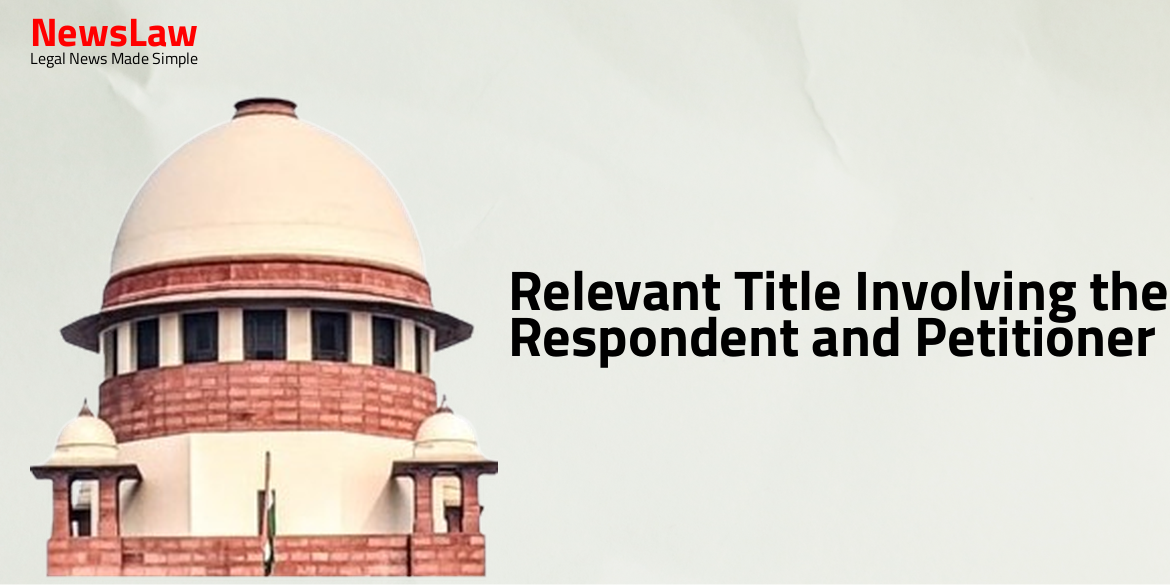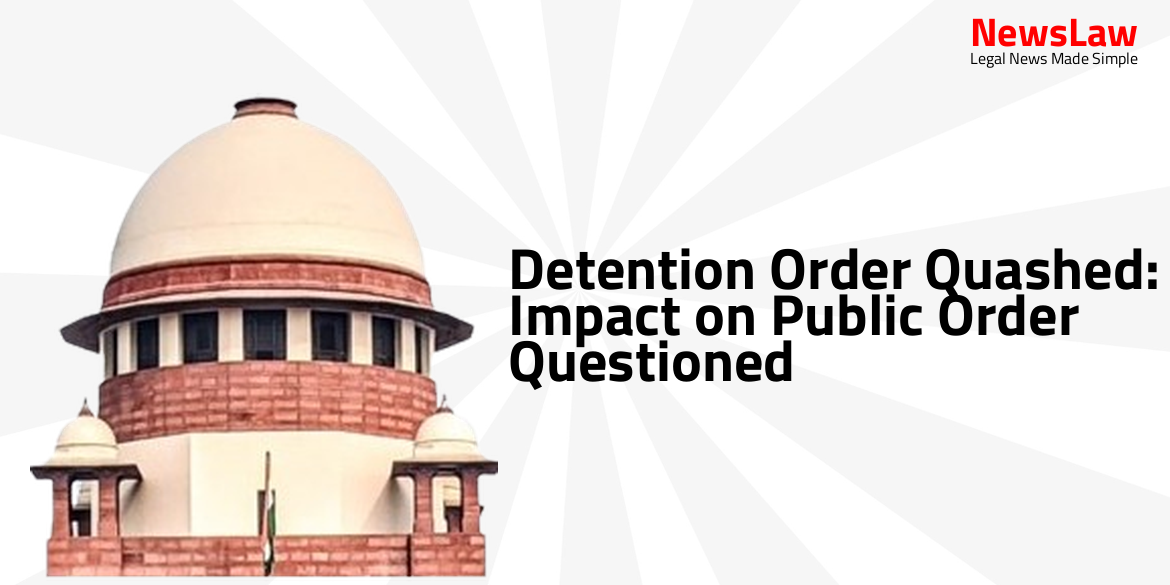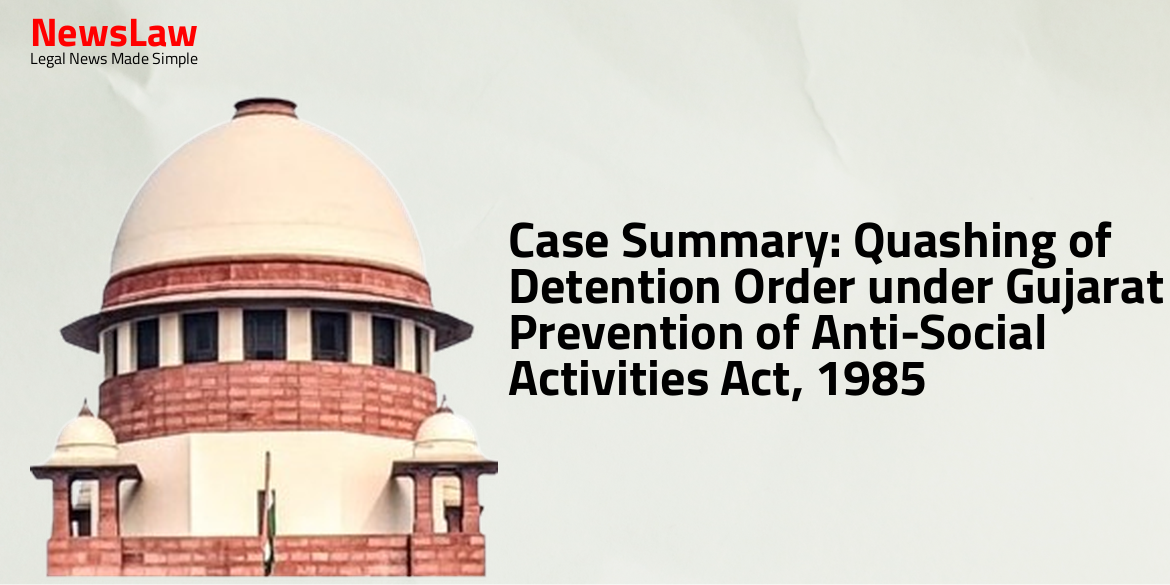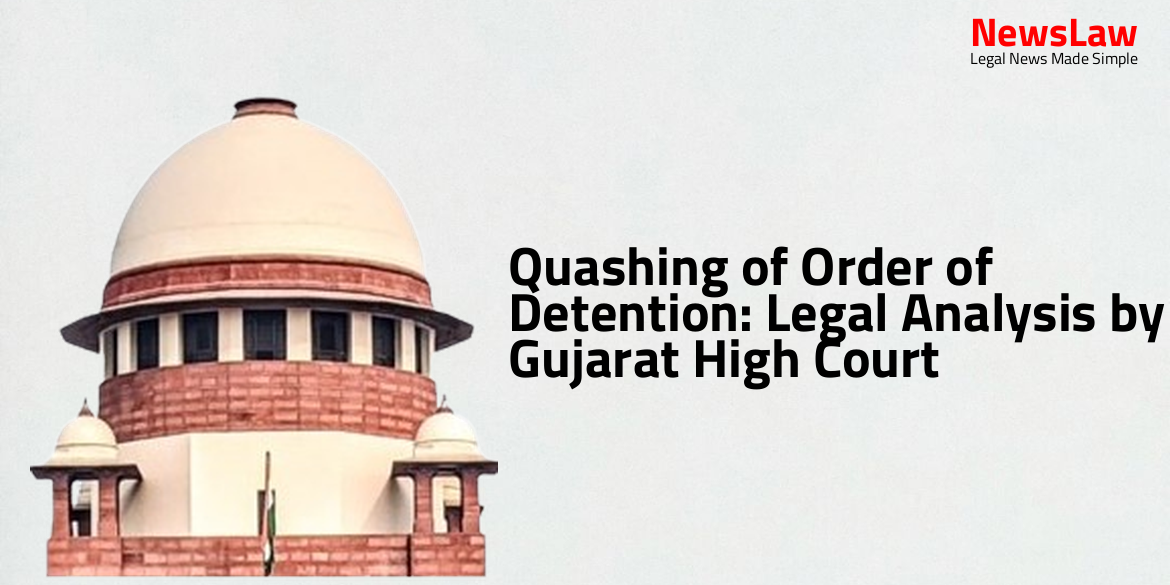In a significant ruling by the Gujarat High Court, the case between the respondent and petitioner delved into the complexities of burden of proof in the context of the Negotiable Instruments Act. This summary sheds light on the nuances of the trial court’s acquittal judgement and the appeal for re-examination of section 139 presumption. Stay informed with this insightful analysis. #LegalCaseSummary #GujaratHighCourt #Judgement
Facts
- The complainant lent Rs. 3,75,000/- to the accused in parts during the years 2014 to 2018.
- A deed was executed in 2019 admitting the amount borrowed by the accused.
- The cheque issued for repayment was returned with ‘funds insufficient’ endorsement.
- A private complaint was filed under the Negotiable Instruments Act, 1881.
- Accused claimed the complaint was false and based on wrongly filled cheques.
Arguments
- Learned advocate Mr. Modi submitted that the complainant proved the debt against the respondent-accused by producing the kararnama below Exh.14 and 15.
- The kararnama states that the respondent-accused borrowed Rs.3,75,000 and issued a cheque for the payment of the debt, which was dishonoured.
- Despite the evidence of debt and dishonoured cheque, the trial court acquitted the respondent-accused from the charges.
- Complainant admits account was opened by the company and cheque book collected through company.
- Complainant fails to establish how they lent the amount to the accused in 2019.
- Complainant left job in 2017 due to pregnancy.
- Learned trial court held complainant had no source of fund to lend the amount to accused.
- Rebutting presumption in favor of complainant under sections 118 and 139 of the N.I. Act.
- Trial court relied on Tedhi Singh Vs Narayan Dass Mahant case to challenge financial capacity during trial.
- Demand notice not replied to, but trial court accepted respondent accused’s defense and acquitted him.
- Advocate argues that defense raised in section 313 statement should not have been believed without reply to demand notice.
- Relying on Tedhi Singh case, but distinguishing it as the facts are different in present case as accused’s story was deemed highly improbable without any supportive actions.
- Advocate seeks interference with trial court’s decision and appeals to allow application seeking leave to prefer an appeal.
Analysis
- The complainant failed to establish the legally enforceable debt against the accused.
- The complainant borrowed money from various persons but none of them stood as witnesses.
- The court did not find any illegality in the acquittal judgment passed by the trial court.
- Presumption under section 118 and 139 of the N.I. Act needed to be re-examined.
- The accused only needs to establish a probable defence, not an unduly high standard of proof.
- There was missing stamp and notary signature on the kararnama.
- Lack of written evidence to prove lending of Rs.3,75,000 to the accused.
- The accused was not expected to discharge an unduly high standard of proof.
- The signatures on Exh.15 documents and Exh.7 disputed cheque were different.
- Presumption under section 139 of the N.I. Act regarding the nature of cheques.
- In the case of Basalingappa V/s. Mudibasappa, the court analyzed Section 139 of the N.I. Act as an instance of reverse onus.
- Section 139 puts the burden of proof on the accused to disprove the presumption of the existence of consideration for issuance of a cheque.
- The court recognized that Section 139 shifts the burden on the accused to prove the non-existence of consideration, which is a departure from the general rule of burden of proof.
- The provision aims to deter people from issuing cheques without ensuring the availability of funds and emphasizes the importance of honoring financial commitments.
Case Title: VIRENDRA DINANATH PANDEY Vs. SERON NEBET MACKWAN
Case Number: R/CR.MA/14460/2023



